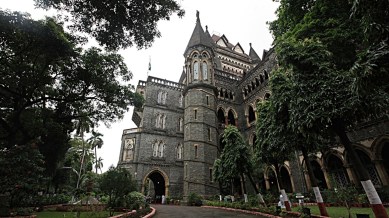Stay updated with the latest - Click here to follow us on Instagram
In relief to 11 Sangli cops, HC quashes two-decade old order initiating criminal proceedings for ‘custodial assault’
The HC said in the present case, “it has to be held that although the allegations levelled against accused persons, though grave, squarely fall within the ambit envisaged under section 197 of CrPC” and allowed the plea of the police officials.

The Bombay High Court granted relief to 11 police officials from Miraj in Sangli district by quashing a 2004 magistrate court order to initiate criminal proceedings against them for alleged custodial physical assault and harassment.
It was alleged that the complainant, who as per police was a ‘habitual offender’, was illegally detained by officials of Miraj police station on July 2, 2004, and the cops had physically assaulted him by “mercilessly beating him on chest and legs” for almost a week. He was produced only after seven days on July 9, 2004, before the magistrate.
monthly limit of free stories.
with an Express account.
The HC found that there was no prior sanction/approval from competent authority under said provision in the present case. However, the court allowed the complainant to pursue his case after taking appropriate steps as per law seeking sanction.
The HC held that although allegations levelled against accused police officials are “grave” they fall within the ambit of Section 197 (prosecution of public servants) of the Criminal Procedure Code (CrPC) as they were “reasonably connected to their official duty.”
A single-judge bench of Justice Madhav J Jamdar passed a verdict last month, a copy of which was made available on Wednesday.
In September 2004, a magistrate court ordered initiation of criminal proceedings against 11 police officials—a police inspector and 10 constables attached to Miraj city police station—for offences punishable under Sections 220 (confinement contrary to law), 330 (voluntarily causing hurt to extort confession) read with 149 (unlawful assembly) of the Indian Penal Code (IPC).
In July 2005, the sessions court dismissed the challenge to the magistrate’s order and confirmed the same, prompting the aggrieved police officials to approach the high court in the same year.
Advocate Sudatta J Patil, representing the petitioners, argued that there were “glaring inconsistencies” in the allegations levelled by the complainant and evidence in the form of remand reports, medical examination reports and other consequences.
Patil also argued that the complainant was produced before the magistrate court on at least five occasions before filing the complaint and despite questions about any ill-treatment, he did not make any complaint against police officers. The cops claimed the complainant was a habitual offender and there were five crimes registered against him, including theft. Chargesheets had been filed for all the cases and the complainant was convicted of two offences.
However, advocate Vaibhav Ugle, appointed as Amicus Curiae in the matter to represent the complainant, argued that he was “illegally detained” and had been “mercilessly beaten on his chest and legs”. Moreover, Ugle said, he was produced before the magistrate after a period of seven days, therefore the magistrate court rightly passed the impugned order against the police officials.
Ugle also argued that the petitioners were not discharging public duty while assaulting the complainant while he was in illegal detention, therefore the impugned orders shall not be interfered with.
Justice Jamdar, after perusing submissions and past Supreme Court judgments, observed that the complainant had not been produced before the magistrate within 24 hours and therefore his “detention became illegal”. The court also noted that “prima facie he has been brutally assaulted” and police personnel acted in excess of their authority.”
However, referring to past Supreme Court judgment, Justice Jamdar observed, “….there is a reasonable connection between the act and the performance of the official duty and therefore the fact that the act alleged is in excess of duty will not be a ground to deprive the policemen of the protection of the government sanction for initiation of criminal action against them.”
The HC said in the present case, “it has to be held that although the allegations levelled against accused persons, though grave, squarely fall within the ambit envisaged under section 197 of CrPC” and allowed the plea of the police officials.